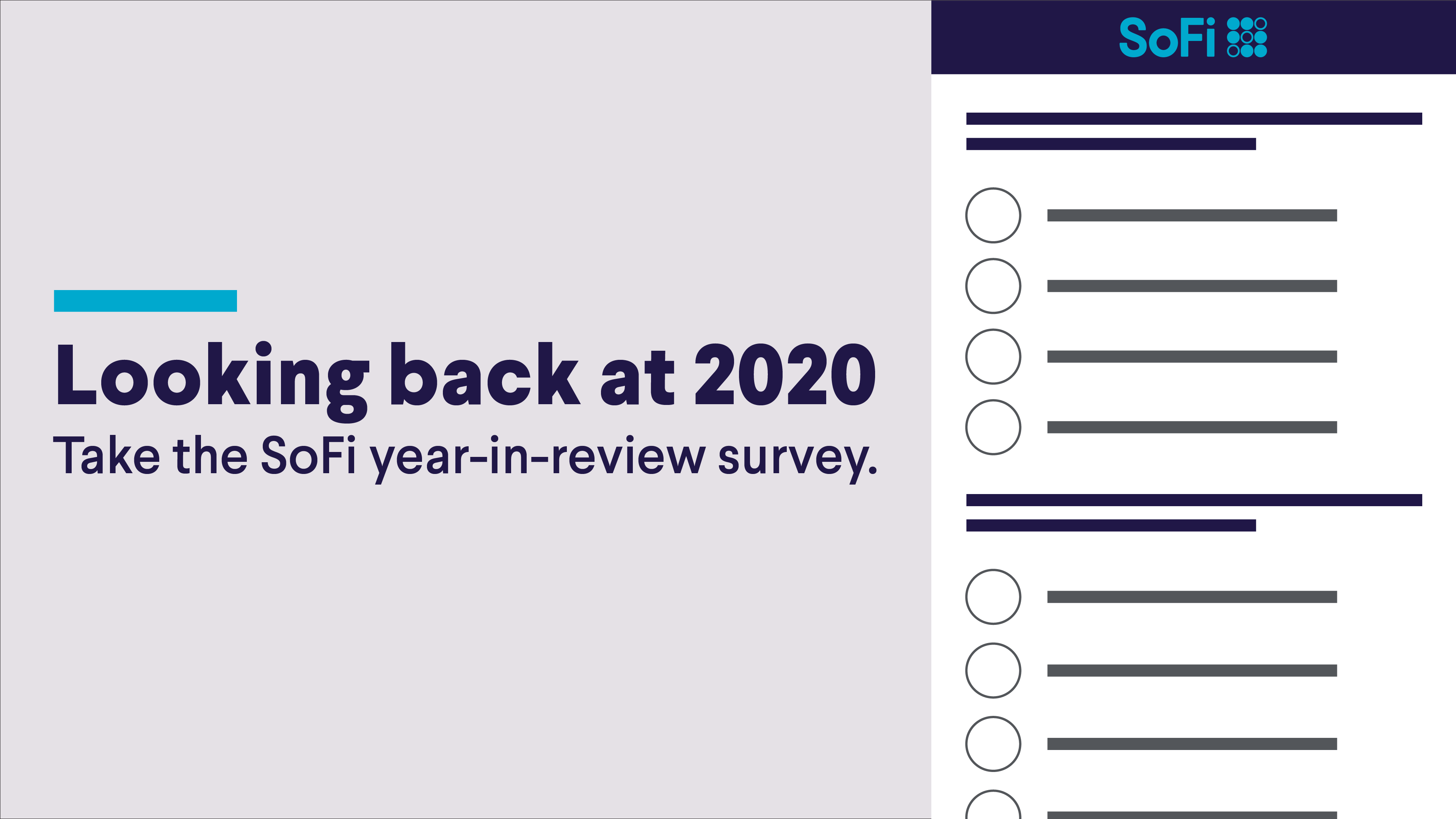Amid evolving news + uncertainty surrounding COVID-19, your financial needs are our top priority. For more information on COVID-19 and your finances click here.

Top Story
Record-Setting Singles Day Sales Are Overshadowed by New Regulations
Alibaba and JD’s Blockbuster Sales
Alibaba (BABA), the Chinese ecommerce giant, set a new record of $75 billion in sales with its annual Singles Day shopping event. Usually the event is one day, on November 11, but this year it started November 1 and is finishing up today. Singles Day is a huge event for ecommerce companies in China like Alibaba, JD.com (JD), and others. It typically generates more sales than Black Friday and Cyper Monday in the US combined. This year it has been bigger than ever for several reasons.
The COVID-19 pandemic has spurred more Chinese consumers to shop online—not just in cities but also in less populated areas. Now, as the country’s economy recovers, people are sticking to ecommerce habits formed during lockdowns and they have more disposable income. Chinese ecommerce platforms are also incorporating more foreign brands into their offerings, as consumers in the country are unable to travel abroad to shop. The combination of these factors has led to a record-setting Singles Day.
New Antitrust Regulations
The blockbuster sales day has been overshadowed by proposed antitrust regulations from Beijing. For some time, certain antitrust laws in China have only applied to the country’s physical economy, not online businesses.
The new regulations would update current laws to reflect the country’s changing economy and the shift to more ecommerce. For example, the new laws would alter how courts determine market share, taking data like user base and page views into account. Alibaba and JD.com could face much stricter regulations. The laws could also impact Chinese social media company Tencent (TCEHY), the food delivery platform Meituan (3690:HK), and rideshare company Didi Chuxing.
A little over a week ago, antitrust regulators in China caused Ant Group, an online payment company and a spinoff of Alibaba, to suspend its IPO. Companies and investors see this as another sign that Beijing may be shifting its outlook on how the Chinese tech industry should be regulated.
Investors Respond
The new laws are under public review until the end of November. Despite the good news about Singles Day, investors in the Chinese tech industry seem concerned.
The announcement about the new laws caused shares of Alibaba and JD.com to tumble. Alibaba’s US shares fell 8% on the news, which is equivalent to $60 billion. The company’s Hong Kong-listed shares were down 9.8%. JD’s US and Hong Kong shares fell 5% and 9.2%. The Hang Seng Tech Index in Hong Kong, home to a number of Chinese tech stocks, tumbled 5% on Tuesday.
Tech companies around the world are facing antitrust battles. Though investors have been carefully monitoring talks between US tech titans and lawmakers, they will now also be watching to see how decisions in Beijing impact Chinese tech.
Introducing the Sofi Credit Card—Designed to Help You Pay Down Debt.*
We’re proud to announce the launch of the SoFi Credit Card! Unlike other credit cards, it’s designed to help you pay down debt*—and help you get ahead. Here’s how:
• Get 2% unlimited cash back toward your goals. Get 1% cash back on all eligible purchases—and when you redeem it to pay down eligible debt, save, or invest with SoFi, we’ll throw in an extra 1%.*
• When you make 12 on-time payments, we’ll lower your APR by 1%.†
• No annual fee.†

Targeted Ads Are Coming to Network TV
TV Networks Catch Up With Tech Companies
Network TV will soon have the ability to leverage the power of targeted ads nationwide. Tech companies like Facebook (FB) and Google (GOOGL) are able to show consumers highly specialized ads based on data about their habits. Network TV companies have lagged behind, using a decades-old ad strategy that mainly just targets consumers based on what shows they are watching. Networks can guess about viewers’ ages and genders, but soon they will have much more specific data about how viewers engage with ads. This will give them new ways to match ads to viewers.
Both networks and brands have been trying to find a way to leverage targeted TV ads for some time, but they have not been able to develop the necessary measurement systems. Now, Nielsen (NLSN), one of the nation’s leading media measurement firms, announced it will collect new types of data to help solve this problem.
Nielsen’s New System
The data Nielsen collects about TV audiences impacts billions of dollars’ worth of deals between advertisers and networks each year. However, its main system has not been updated since 2007, which is when it began collecting viewership data for commercial breaks rather than individual programs.
Now Nielsen plans to collect new kinds of viewership data from 55 million devices through partnerships with AT&T’s (T) DirecTV, and DISH Network Corp. (DISH). This will help advertisers and media companies track millions of views of shows and the ads that go with them. Armed with this data, Nielsen will be able to help measure engagement with ads aimed at very specific demographics on a national scale.
Looking Ahead
Targeted ads are already sold locally by pay-TV distributors, which can target specific ZIP codes and even households. Advertisers can distribute targeted ads nationally through these local networks, but it has to be done piecemeal. Nielsen’s new system of data collection will help streamline this process.
The new system is expected to raise the value of TV commercials. Recently, viewers have been engaging less with broadcast and cable networks and watching streaming services instead. This has caused advertisers to flock to these streaming services and to social media sites with robust targeted ad capabilities. However, thanks to Nielsen’s new data, it is likely that many advertisers will soon have renewed faith in TV advertising.
Take the SoFi Year-in-Review Survey
2020 has been a unique year. We want to hear from our SoFi members, from challenges you may have faced to the accomplishments you're most proud of. The survey should take no more than 10 minutes and can be accessed here. We appreciate your support!

At-Home Coffee Companies Gain Ground
The Morning Coffee Routine Is a Difficult Consumer Habit to Change
For years, executives running at-home coffee companies like Folgers and Maxwell House have been trying to convince consumers to drink more coffee at home, as to-go coffee from companies like Starbucks (SBUX) and Dunkin’ (DNKN) gains popularity.
Food marketers say that the morning coffee routine is one of the most difficult consumer patterns to change, and at-home coffee brands have spent decades struggling to lure customers away from coffee shops. Then the COVID-19 pandemic hit, and sales of at-home coffee and coffee supplies surged as people worked and got their caffeine fix at home.
Starbucks and Dunkin’ Adapt
While retail coffee sales heat up, Starbucks reported a 9% downturn in comparable-store sales in the Americas for its latest quarter. Sales of Starbucks-branded packaged coffee rose during the period, helping the company make up for some of its coffee shop business.
Dunkin’ has returned to growth at its open locations, but it has closed hundreds of stores that were seeing weak demand as a result of the pandemic. In order to try to draw people away from coffee in their kitchens, Dunkin’ is adding more blended drinks to its menu, which are harder to recreate at home.
Sales of Coffee Machines and Retail Coffee Heat Up
Retail coffee sales have climbed about 10% so far this year, compared to a 2% sales increase seen in most other years. Sales of at-home coffee equipment, like espresso machines and pour over brewers, have spiked by 28% since the pandemic began. Keurig Dr. Pepper (KDP), which sells a variety of at-home coffee makers, said it will reach three million new households this year.
The at-home coffee industry is hoping that consumers will continue to use their new coffee makers to brew drinks at home even after they return to work at the office. Coffee shops, on the other hand, hope people will get back to their pre-pandemic coffee on-the-go habits.
Not-So-Breaking News
- This weekend, Chipotle (CMG) will launch its first digital-only restaurant in Highland Falls, New York. The restaurant will not have a dining room or a line for ordering. Instead, all customers will order and pay for their food ahead of time on Chipotle’s app, or through a third-party delivery service.
- Lyft (LYFT) is making plans to break into the food delivery landscape as its core ride hailing business continues to suffer. The company’s shares initially climbed 6% on the news, though they have fallen more than 50% since the company went public in 2019.
- Pfizer (PFE) and BioNTech (BNTX) made a deal to provide 200 million doses of their COVID-19 vaccine candidate to the EU. So far, this is the largest order for the vaccine. Earlier this week, the companies announced that their vaccine proved 90% effective in Phase 3 trials.
- Boeing (BA) reached a $9.8 billion deal to work on the modernization and maintenance of Saudi Arabia’s fleet of F-15 planes. The work will take place in St. Louis and is expected to be completed by 2025.
- Yesterday, IBM (IBM) and AMD (AMD) announced a joint agreement to develop both companies’ security and AI capabilities. The project will involve confidential computing in hybrid cloud environments.
- How many credit cards are too many? One, two, ten? Explore some common stats, tips, and ways to keep on top of credit card debt. Read How Many Credit Cards Should I Have? on SoFi Learn.
Financial Planner Tip of the Day
"When you’re just starting out, turning to a spouse or parent for a joint account or co-signer can be a valuable way to build credit (think joint credit cards or parents co-signing on student loans). In the long run, however, you will be in a much stronger position if you keep as much borrowing as possible in your name (and only your name)."
Brian Walsh, CFP® at SoFi
